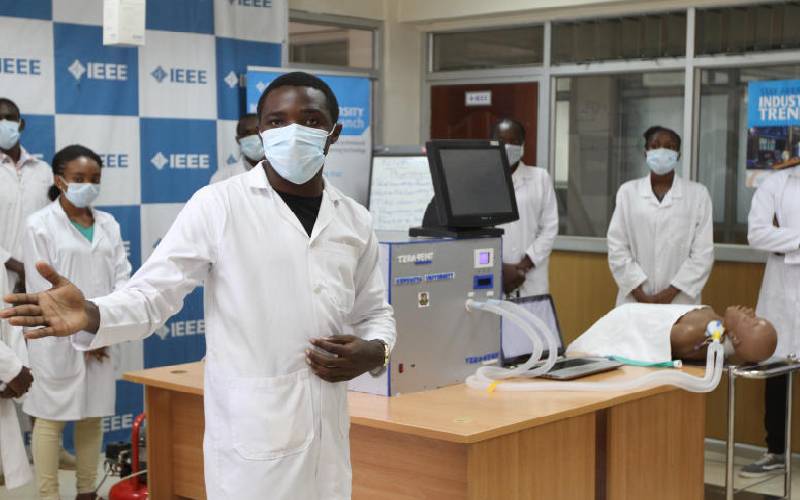×
The Standard e-Paper
Join Thousands Daily

Kenyatta University student Fidel Makatia conducts a demo of a prototype ventilator. [File, Standard]
Ventilators and contact tracing applications are among innovations that Kenyans have submitted to government agencies for certification to fight the Covid-19 pandemic.